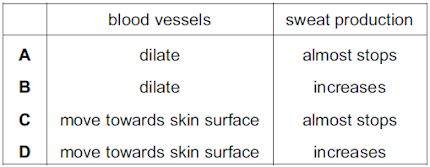The Treaty of Versailles and its allies at Versailles brought fierce criticism.
The Treaty of Versailles and its allies at Versailles brought fierce criticism.
What features of the Treaty of Versailles were shared by the other peace treaties of 1919-1920?
The main terms of the Treaty of Versailles were that Germany has to accept blame for starting the war, had to pay reparations, undertake disarmament, give away its territories, in addition, Wilson's 14 points were neglected, Germany was not invited to join LON, furthermore Germany was forced to accept a harsh treaty without any choice. Similarly, the other treaties were imposed on Germany's allies based on similar principles.
They are as follows:
- Treaty of St Germain (1919) - Dealt with Austria, its army was limited to 30,000 men, it was forbidden to unite with Germany. The Austro-Hungary empire was broken up, creating a patchwork of new states, and many of these states contained large minorities of Germans. Austria suffered severe economic problems as a result of the Treaty.
- Treaty of Neuilly (1919) - Dealt with Bulgaria, it lost its land to Greece, Romania and Yugoslavia, its army was limited to 20,000 and it had to pay £10 million in reparations. Bulgaria was probably treated less harsh than Germany's other allies overall.
- Treaty of Trianon (1920) - Dealt with Hungary, it lost territory to Romania, Czechoslovakia, and Yugoslavia, it was due to pay reparations but its economy was so weak, it never did.
- Treaty of Sevres (1920) - Dealt with Turkey, it lost its land to Greece, Bulgaria and Italy, its armed forces were limited to50,000 men.
Therefore to conclude, feature of Treaty of Versailles shared by other peace treaties were:
- The War Guilt Clause.
- An obligation to pay reparations.
- A need to reduce armaments.
- An acceptance of the Covenant of the League of Nations.
- The defeated countries all lost territory.
- All the treaties were diktats.
- Germans did not feel they had started the war and they were the very least that the blame should be shared.
- German's economy was too weak to pay for all reparations.
- Limiting the army to 100,000 is small for a big country and army was Germany's pride.
- None of the allies were forced into disarmament like that of Germany.
- Major blow to German pride and economy.
- Saar and Upper Silesia (industrial areas) lost.
- Britain and France took control of German territories in Africa.
- Wilson's fourteen points was not considered during the treatment of Germany.
- German speaking people were hired off into Czechoslovakia and other countries and ruled by non-Germans.
- Anschluss with Austria was forbidden.
- Germany was not invited to join the LON.
- The German government was not represented at the peace talks and were forced to accept harsh treaties without any choice or any opinion.




Comments
Post a Comment